James Skinner
Successful Farmer and family man
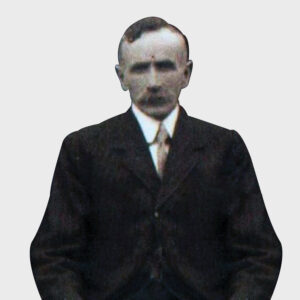
James Skinner was our great-grandfather. He was born in 1863 at Abernant Farm, a large property in Kemeys Inferior, Monmouthshire. James was the son of Scottish-born John and Jessie Skinner and grew up on the farm with elder brother John and three sisters: Margaret, Jane, and Jessie. His father was a renowned and successful farmer, and from a young age James look destined to follow in his footsteps.
James received a good education, both in the classroom and on the farm, and attended many agricultural shows with his father. His mother Jessie always encouraged him to study and James enjoyed learning. Our great-grandfather may have been born in Monmouthshire, but he grew up, and remained, a proud Scotsman.
By the time of the 1891 census, 28-year-old James was the only one of his siblings left at Abernant. His three sisters had all married and left to live with their husbands, whist brother John had emigrated to Nebraska, USA. His now widowed-father John was still at Abernant and living with his second wife and stepchildren. John was planning for retirement which left James in line to take on the valuable tenancy at Abernant Farm.
In April 1894 James married Rosa Kate Watkins at Nash Baptist Chapel. Rosa was living at Pye Corner Farm in Nash with her parents, William and Ann Watkins. William was a prosperous farmer and landowner. Rosa moved to Abernant Farm following the wedding and in the same year, James’ father John left the farm and moved to Cats Ash with his wife Mary and new family.
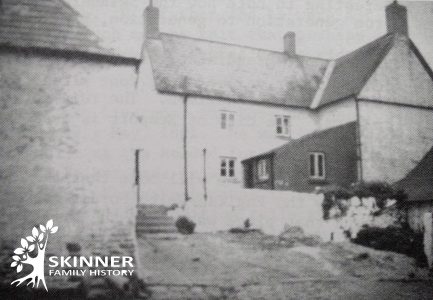
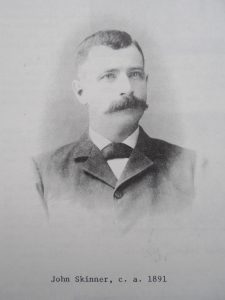
In 1896 James received a welcome visitor when brother John sailed from Nebraska, it was an 8-week visit to see his family and purchase stock. Although on different continents, the brothers always remained close. Despite James’ reputation for being poor in writing letters, the two did correspond, writing about their respective families and farms. The 1901 census was the first to record James as the head of household and employer. Also living at Abernant Farm was Rosa, their first four children, and Myra Watkins (Rosa’s sister) who remained at Abernant until her death in 1907.
In all James and Rosa had seven children. Wallace was first born in 1895, then Ralph 1896, Jessie 1898, Donald 1899, Reginald 1901, Raymond 1903, and Margaret in 1909. All of the children were baptised in 1912 at All Saint’s Church in Kemeys Inferior. The church was an important part of James’ life, he was the Church Warden for many years and also served as the Chair of the Parishioners society.
Education was important in the Skinner house and all of the children went to school in Caerleon where they behaved and performed well. Reg did not miss a day at school for six years and was presented with a watch, whilst Jessie did even better, not missing a day at school for seven years and being awarded with a medal! James and Rosa later paid for Jessie to attend Oxford University.
A resident of Caerleon noted how you could set your watch by the Skinner children passing his house at 8.45am every morning on their way to school. It was a 4 mile walk each way, in all weathers. In a letter James wrote to his brother John, he proudly described how his two youngest were at school and what “good little boys” they were.
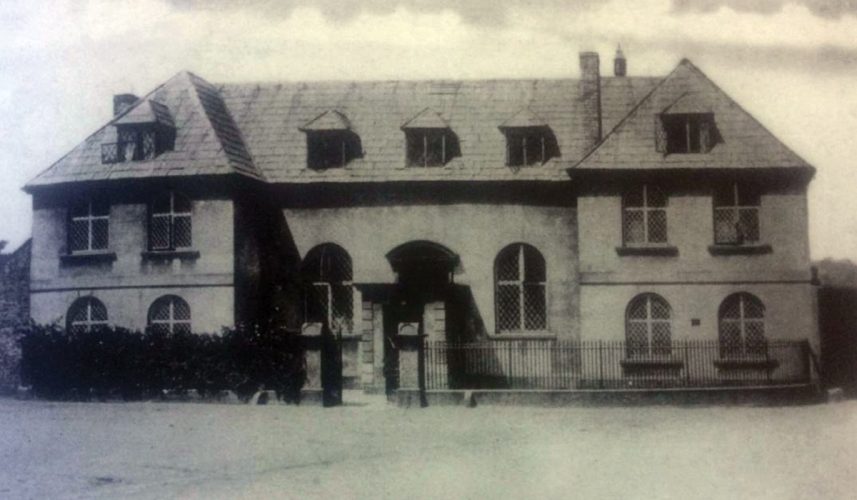
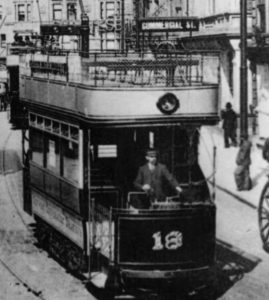
Records suggest that James, like his father before him, was a talented agriculturist and respected by his peers, he was also a prominent member of the of the Farmers Union. James was successful in many agricultural contests and sought to diversify the output of Abernant Farm which under his father was renowned for the quality of cattle and poultry. The 1910 electoral register also shows that James had acquired land in Llanhennock, a village situated off the Usk Road near Caerleon.
A report in the local paper showed James taking 1st place in a cheese competition held at Newport Provisions Market. James could also be called a traditionist, it is said that if there wasn’t a horse drawn trolley available in Newport he would rather walk home then get on the electric tram car!
We know from letters written during WW1 that the war years presented particular challenges for James. His two eldest sons were drafted into the army, James worried terribly for his boys and also struggled with the void they left on the farm. James wasn’t a well men and suffered from asthma and bronchitis, when the weather was bad he could be confined to bed for several months.
His three youngest sons all took on additional work at the farm to help out, something that stood them in good stead for their lives ahead. At the end of the war both Wallace and Ralph (who had been wounded twice) returned home to their family at Abernant. A letter written in 1919 tells us that James did have an opportunity to buy Abernant, but he considered the price too high to contemplate.
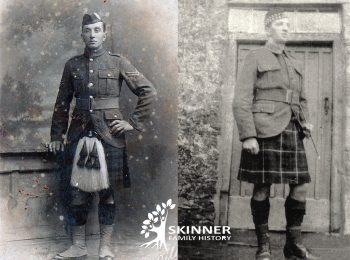
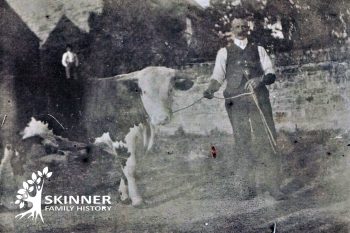
Surviving accounts provide us with some valuable insights into the man James was. Whilst sharing his father’s passion for farming and stock, James was a more serious and reserved man. He didn’t drink and had little time for frivolous activities. A proud person, James cared deeply for his family, his farm, and his church.
His daughter Jessie wrote about her father, including this line in a letter to her uncle John. “He is considered apart… this is not chiefly because he has money, nor because he has brains, but for a far, far greater thing – because he has character.”
The success of Abernant Farm allowed James and Rosa to invest in other property. The bought the remote Buckwell Farm near the small village of Devauden. This was used by some of the Skinner sons to learn the family trade, Donald and Ralph in particular spent considerable time living at the farm in the 1920s. They also owned pastureland in Goldcliff which their son Ray later rented from them.
The 1921 census shows that the majority of the Skinner family are still living at Abernant Farm, but over the course of the decade there was huge change. A photograph from 1922 captures the whole family together, possibly for the last time. Soon after the photo was taken Wallace left for New Zealand, Ralph for Australia, Reg married and later settled in America with his wife, whilst Jessie married and moved to Newport. The achievements of all seven of their children speak volumes for the upbringing they were given by James and Rosa. You can read more about the children here.
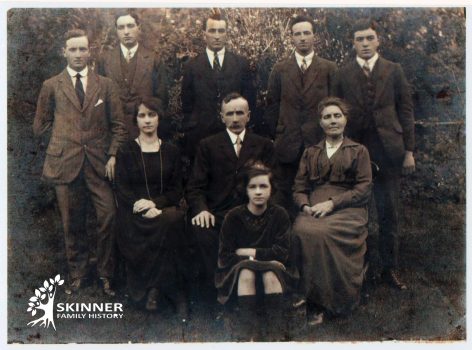
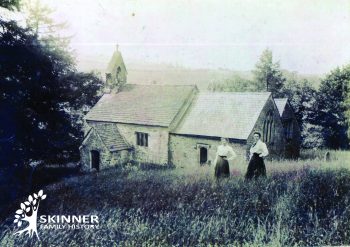
James Skinner, after suffering with his health for many years, died on October 31st 1927, he was 64. A funeral report printed in the Western Mail mentioned the 60 years he had spent at Abernant Farm, as well as the number of dignitaries who had attended the funeral. His five sons, plus son-in-law, John Howard, were chief mourners at the funeral. He was buried at his beloved All Saints Church.
Following Jame’s death Rosa moved in with her eldest-son Wallace and his wife Edith at Hendrew Farm in Llandevaud. Another of James’ sons, Donald, remained at Abernant and continued to run it with the support of his brother Ray.
